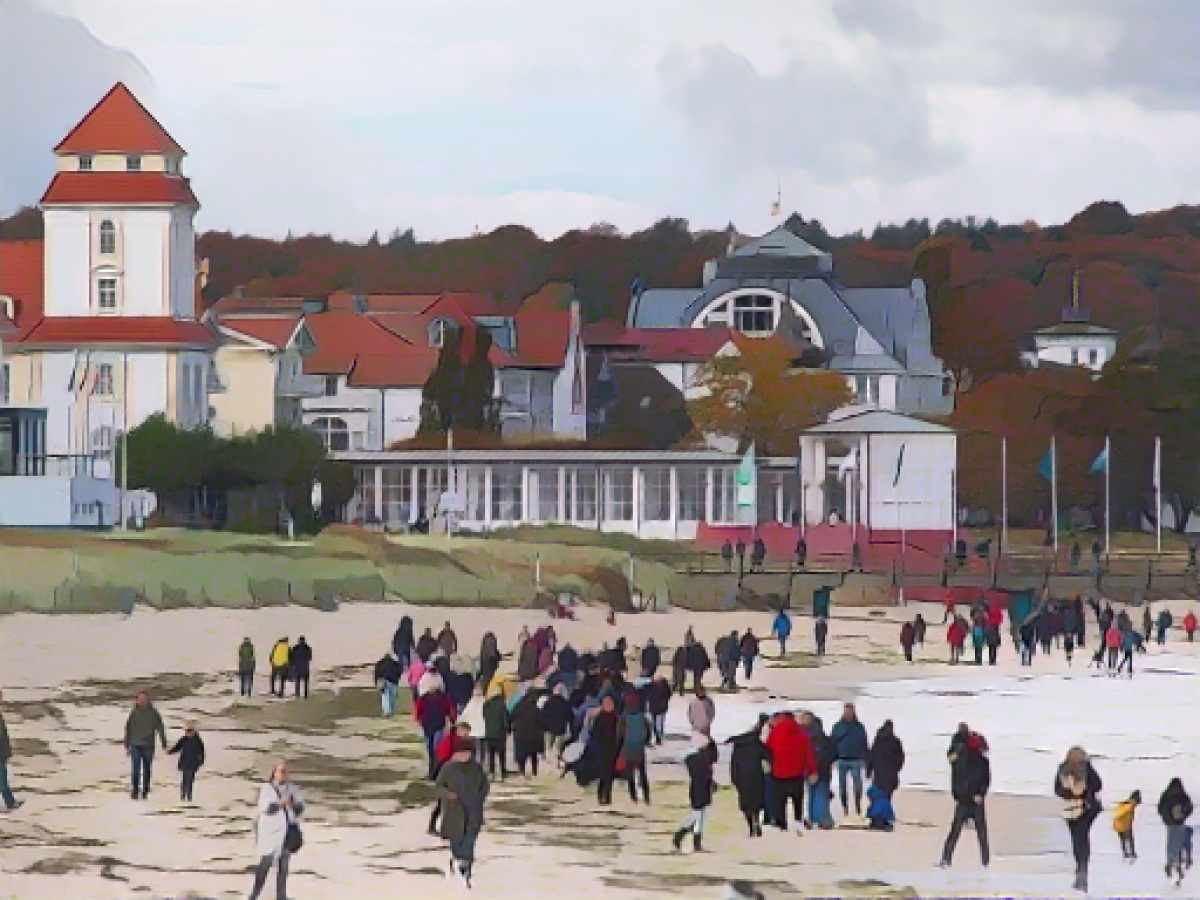Tourism Appreciation Dips in Mecklenburg-Vorpommern
Things aren't looking so bright for the tourism industry in Mecklenburg-Vorpommern, according to recent findings. In a survey conducted by the West Coast University of Applied Sciences and dwif-Consulting GmbH, it's been discovered that locals' appreciation for tourism in their area has taken a hit. This year, only 66% of respondents rated tourism as important for their region, compared to 74% in 2021 and 2022.
Tobias Woitendorf, the head of the state tourism association and tourism commissioner, acknowledges a similar trend nationwide. He attributes this shift in sentiment to crises and uncertainties, as well as the potential overshadowing of tourism's benefits due to discussions about its burdens within economic policy.
As part of the study, more than 1,390 people were surveyed on tourism acceptance between May and July.
So, what exactly is causing this dip in tourism appreciation? Let's delve a little deeper.
Overtourism and Infrastructure Overload
In some places, an influx of tourists has resulted in a strain on local resources. For instance, on San Andrés, an island whose tourism sector makes up 90% of its economy, overtourism has led to issues like a shortage of clean drinking water, a landfill nearing capacity, and sewage system overflows.
Crises and Uncertainty
Crises, such as the collapse of budget airlines like Viva Air and Ultra Air in Colombia, have significantly impacted some destinations. In San Andrés, this led to a 30% drop in hotel occupancy and potential job losses. Meanwhile, the global COVID-19 pandemic has caused a 72% decline in international tourist arrivals in 2020 and 71% in 2021, leading to significant economic and social impacts.
Discussions About Tourism Burdens
Residents in affected areas often express concerns about the negative impacts of tourism, such as environmental degradation, resource depletion, and cultural homogenization. Conversations about these burdens highlight the need for more sustainable and culturally responsible tourism practices, with a growing desire for eco-friendly tourism and smaller, locally-owned establishments.
In conclusion, the decline in locals' appreciation for tourism is due to the negative consequences of overtourism, which includes infrastructure overload and environmental degradation. Furthermore, crises like airline bankruptcies and global economic uncertainties exacerbate these issues, leading to a reevaluation of the tourism industry's sustainability and impact on local communities. The need for more sustainable and culturally responsive tourism practices is more apparent than ever.
Sources:
Enrichment Data:
- The decline in locals' appreciation for tourism in certain areas, like San Andrés, is primarily attributed to the negative impacts of overtourism and specific crises.
- Overtourism often results in the loss of local character, rising prices, and falling standards in services, leading residents to feel a loss of quality of life due to increased pressure on resources and infrastructure.
- The collapse of budget airlines and global economic uncertainty due to COVID-19 has had a profound impact on international tourism, causing job losses and risks to over a hundred million direct tourism jobs worldwide.
- Residents in affected areas express concerns about the negative impacts of tourism, such as environmental degradation, resource depletion, and cultural homogenization, and advocate for eco-friendly tourism practices focus on sustainability and community interaction.








